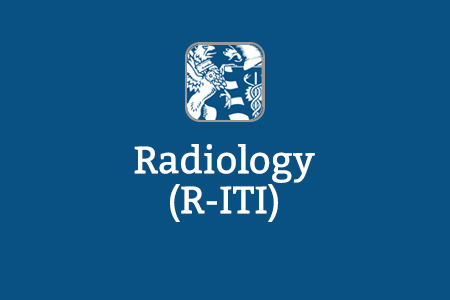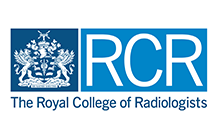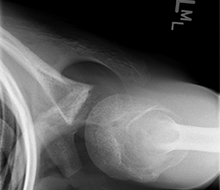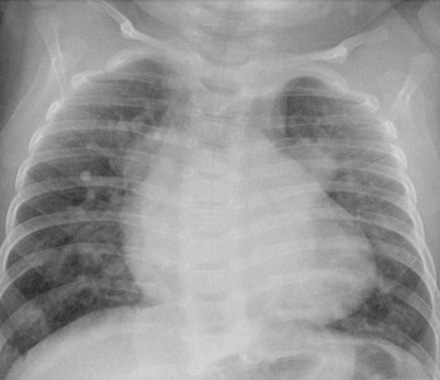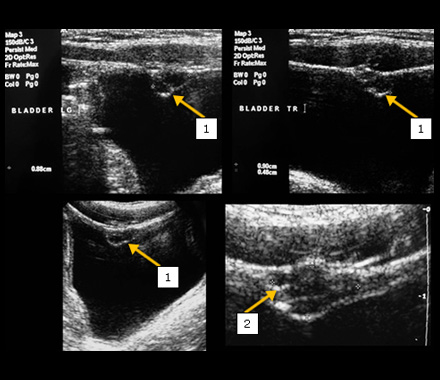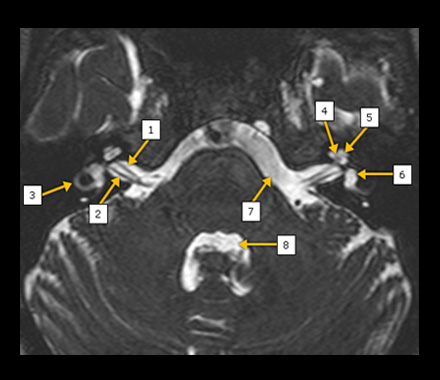About the Radiology programme
What is R-ITI?
The Radiology-Integrated Training Initiative (R-ITI) is an elearning resource available via the elfh Hub to approximately 5600 UK radiologists. With over 650 hours of elearning and around 800 elearning sessions, it is one of the largest elearning projects in the world. The original project also incorporated the setting up of radiology academies and a validated case archive.
The award-winning R-ITI elearning resource was developed in the UK by Health Education England elearning for healthcare (HEE elfh) in collaboration with the Royal College of Radiologists (RCR).
For more information on the history of elfh and how it all began click here.
Background to R-ITI
R-ITI’s elearning resource is based on the knowledge and experience of practising clinical radiologists, representing best practice in radiology and combining traditional proven teaching models with state of the art technology.
R-ITI was launched in May 2007 and has received a number of industry awards.
Who is R-ITI for?
Written by expert radiologists and based around the core radiology curriculum, R-ITI is an essential tool for radiology trainees. R-ITI is designed to support and enhance the learning of ST1-3 specialist registrars on the five-year radiology training scheme. The programme offers ideal preparation for the Fellowship of The Royal College of Radiologists (FRCR) and equivalent examinations.
R-ITI can also be used by fully qualified clinicians or consultant radiologists looking to reinforce, strengthen or maintain core knowledge.
What is R-ITI?
More information
What does R-ITI contain?
The core RCR curriculum is broken down into 15 modules by subject area covering all aspects of radiology:
| 0 Making the Most of R-ITI elearning | 2 Musculoskeletal and Trauma | 4c Genito-Urinary and Adrenal | 7 Radionuclide Radiology |
| 1a Cardiac | 3 Gastro-Intestinal | 5 Paediatrics | 8a Physics |
| 1b Thoracic-Respiratory | 4a Breast | 6a Head and Neck | 8b Basic Science |
| 1c Vascular and Interventional | 4b Gynaecology-Obstetrics | 6b Neuroradiology | 8c Professional Skills |
The Curriculum Guide contains detailed information on all the individual sessions contained within each module. Other HEE elfh programmes that may be of interest to radiologists include; Advanced Radiotherapy, Anaesthesia, Ionising Radiation (Medical Exposure) Regulations, Interpretation of Radiological Images, Radiation Protection, Radiation Safety for Staff, Safeguarding Children and Young People and Statutory and Mandatory Training 2017. Programmes focusing on professional skills include; Equality & Diversity, Leadership for Clinicians (Clinical Leadership and Medical Leadership), Management and Leadership Skills and Research, Audit and Quality Improvement.
How to make the best of R-ITI
This highly engaging content includes many interactive features, such as practical exercises and self-assessment questions, to reinforce learning and understanding. Using interactive case studies, you can analyse written reports, enhance your skills in interpreting clinical information and test your diagnostic skills. You can also view numerous high-quality images including radiographs (X-rays), ultrasound and MRI video clips and 3D diagrams, which create greater spatial awareness and realism than textbook learning.
Learning paths
A learning path is a grouping of R-ITI sessions collected together in a way that suits an individual training programme’s teaching methods and rotations. There are two main ways these can be structured:
- By training year – for example King’s College, London has learning paths for each of Years 1, 2 and 3
- By special interest – for example Oxford University Hospital NHS Foundation Trust has introductory, intermediate and advanced paths for interventional radiology as well as paths for paediatrics and ST1 anatomy.
Learning paths are easy for elfh to build for you. All they need is a list of the sessions that you want to include. If you are interested in doing this for your training programme, please email support@e-lfh.org.uk.
Sample sessions
-
Bone Lesions of the Diaphysis
In this session you will see a range of diaphyseal lesions. Images of aggressive and non-aggressive lesions are presented, together with explanations regarding the pathologies and their differential diagnoses.
-
Cardiac Shapes
This session reviews which chambers contribute to the ‘normal cardiac outline’ and examines how specific chamber enlargement or absence alters the normal cardiac shape. It will describe the different diagnoses, which result in characteristic cardiac shapes that enable the diagnosis to be made from the chest radiograph (CXR). Associated features such as other mediastinal findings and changes in the lungs, for example right aortic arch, will be included where relevant.
-
Abnormalities of the Bladder and Urethra
In this session you will learn about congenital abnormalities of the bladder and urethra. You will also learn about some normal anatomical structures in the urethra which can be confused with abnormalities.
-
Vestibular Schwannomas
In this session, we will cover the anatomy of the cerebellopontine angle (CPA) and the common types of CPA lesions with emphasis on vestibular schwannomas. We will briefly discuss the presentation of such lesions and the strategy for their investigation, including the role of computed tomography (CT), magnetic resonance imaging (MRI) and advanced MRI sequences.
Project team

Martin Sinclair
Programme Lead, HEE elearning for healthcare
William Ramsden
Medical Director for Education and Training, Royal College of Radiologists
Jasmine Deol
Project Manager, HEE elearning for healthcare
Heather Wanstall
Head of Professional Learning and Development, Royal College of Radiologists
Stephen Ellis
Clinical Project Lead
How to access
In order to access the Radiology programme, you will need an elfh account. If you do not have one, then you can register by selecting the Register button below.
To view the Radiology programme, select the View button below. If you already have an account with elfh, you will also be able to login and enrol on the programme from the View button.
Not an NHS organisation?
If you are not an NHS health or care organisation and therefore do not qualify for free access elfh Hub, you may be able to access the service by creating an OpenAthens account.
To check whether or not you qualify for free access via OpenAthens, you can view the eligibility criteria and register on the ‘OpenAthens’ portal.
Registering large numbers of users
If you are a HR, IT or Practice Manager and would like to register and enrol large numbers of staff within your organisation for access onto the Radiology programme, please contact elfh directly.
Organisations wishing to use their own LMS
For HR departments wanting to know more about gaining access to courses using an existing Learning Management System please contact elfh directly to express interest.
How to license
In the event that you do not qualify for free access to the Radiology programme, you are able to license access through eIntegrity, a community-interest company established for this purpose.
You can check whether or not you qualify for free access by clicking on the ‘Register’ button above.
For more information on the licensing options available for the Radiology programme, please visit the eIntegrity website..
More information
Please select the following link for more information on how to use the elfh Hub.



